Climbing Kiyomizudera Temple in a Kimono: A Practical Guide
Experience Kyoto’s Cultural Heart in Traditional Elegance
- Introduction
- Why Visit Kiyomizudera Temple in a Kimono?
- A Brief History of Kiyomizudera Temple
- Where to Rent a Kimono in Kyoto
- Best Seasons to Visit in a Kimono
- Practical Tips for Climbing Kiyomizudera in a Kimono
- Cultural Etiquette to Remember
- Best Photo Spots at Kiyomizudera
- What Kind of Kimono Should You Wear?
- Suggested Itinerary: A Day in Kimono at Kiyomizudera
- Beyond Kiyomizudera: Other Kimono-Friendly Spots Nearby
- Conclusion
Introduction
Kyoto is a city where tradition and elegance merge into everyday life. Among its most iconic landmarks, Kiyomizudera Temple stands out as a breathtaking symbol of Japan’s cultural heritage. Every year, millions of visitors climb the steep paths to reach this UNESCO World Heritage Site. But imagine doing it while wearing a beautiful kimono, embracing the very spirit of Kyoto.
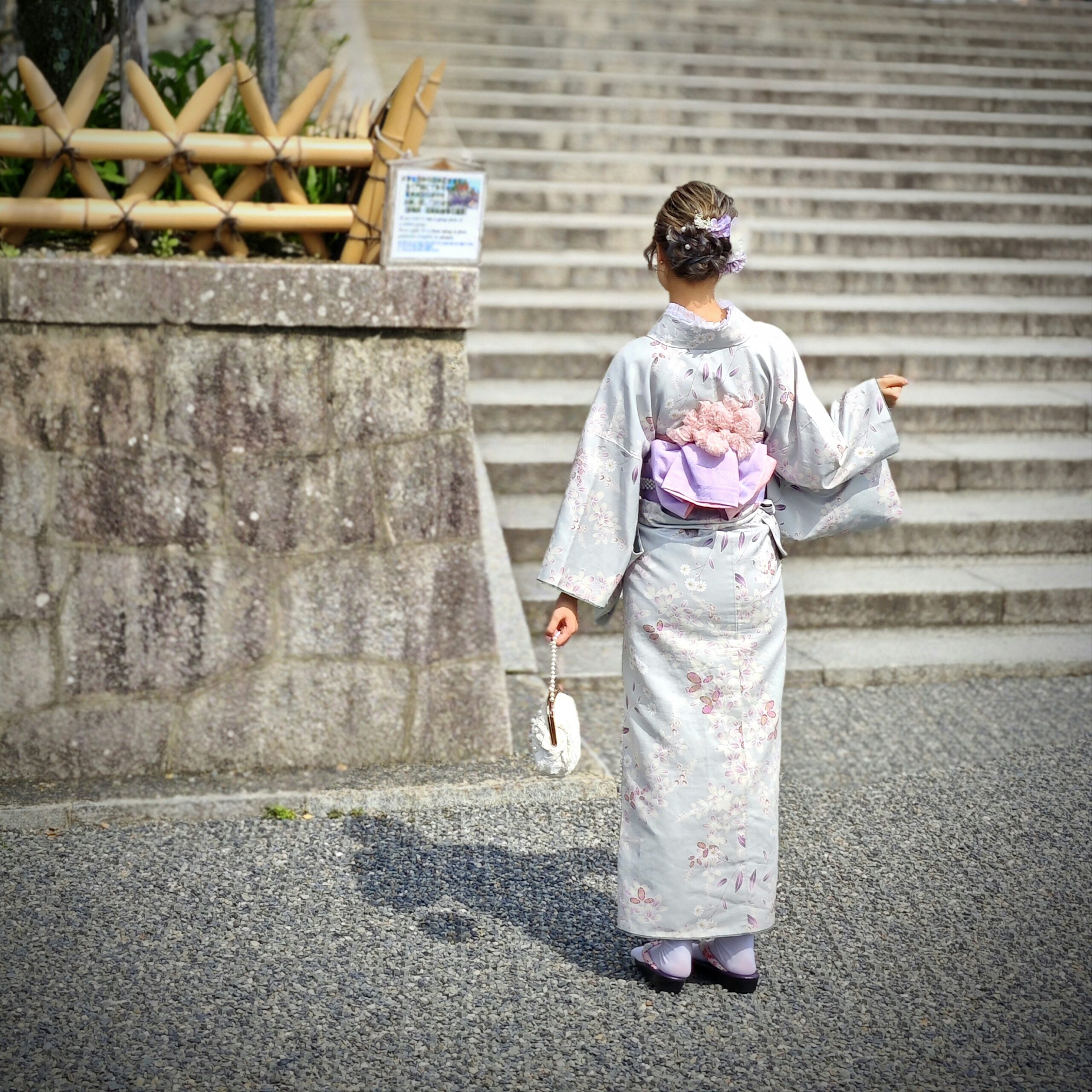
A woman in traditional kimono ascending the historic stone steps to Kiyomizudera Temple
In this guide, we will explore everything you need to know about visiting Kiyomizudera Temple in a kimono: how to prepare, where to rent, what cultural etiquette to follow, and the best photo spots to capture unforgettable memories.
📸 Want professional kimono photography in Kyoto? Visit AllPhotos Kyoto to book your personalized photoshoot and make your experience even more special.
Why Visit Kiyomizudera Temple in a Kimono?
Wearing a kimono at Kiyomizudera is more than fashion—it’s a cultural immersion. Here’s why it’s worth considering:
- Cultural Authenticity: Walking through historic streets like Sannenzaka and Ninenzaka in a kimono brings the past to life.
- Memorable Photos: The vibrant patterns of kimono contrast beautifully with the temple’s wooden stage and the seasonal nature views.
- Connection with Tradition: Kyoto locals often wear kimono during festivals and ceremonies. By renting one, you become part of the city’s timeless story.
A Brief History of Kiyomizudera Temple
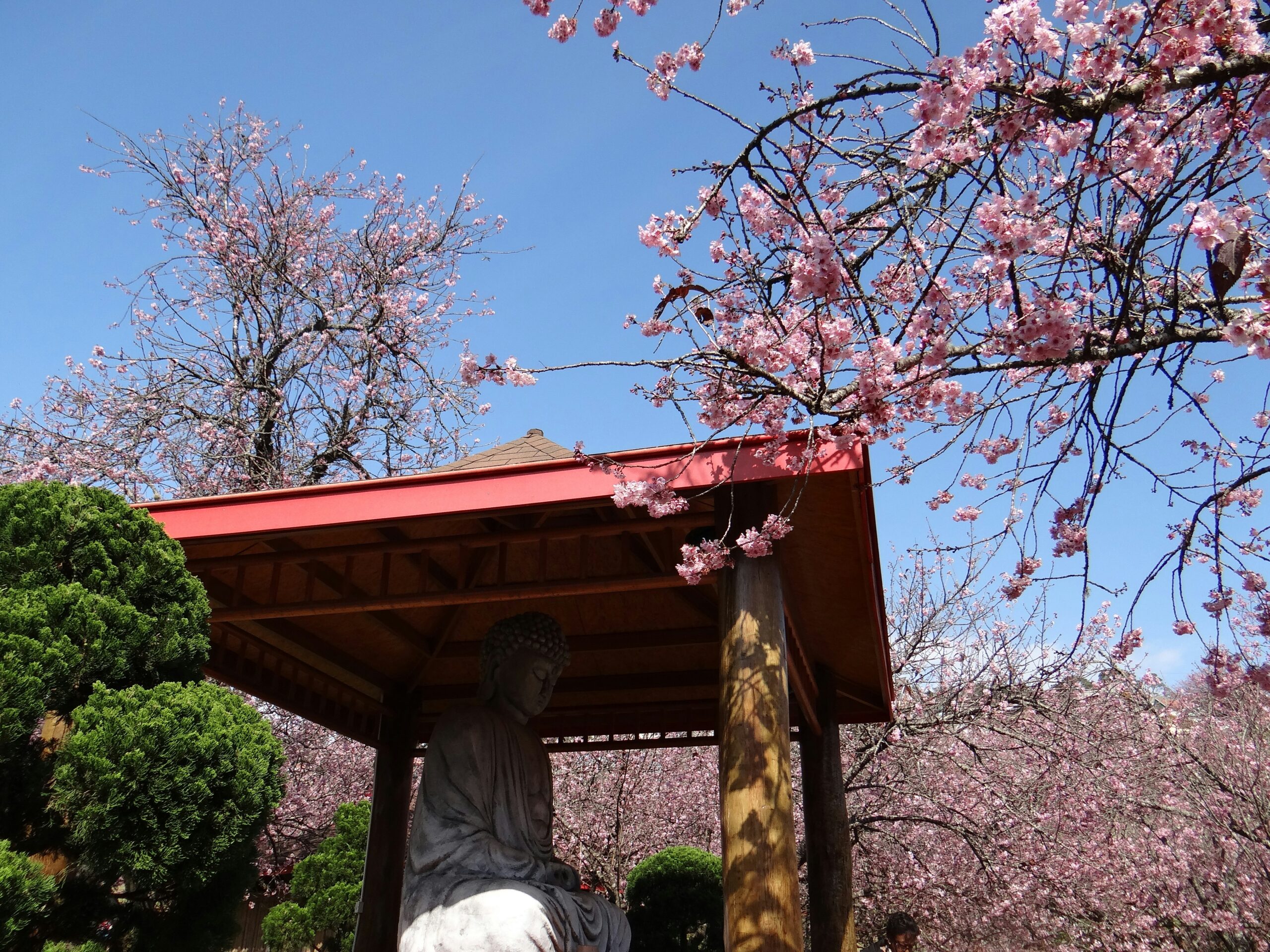
Kiyomizudera Temple framed by magnificent cherry blossoms in spring
- Founded in 778: One of the oldest temples in Kyoto.
- Name meaning: “Kiyomizu” means pure water, referring to the Otowa Waterfall inside the temple.
- Famous wooden stage: Built without nails, it offers panoramic views of cherry blossoms in spring and maple leaves in autumn.
- UNESCO recognition: Part of the “Historic Monuments of Ancient Kyoto.”
This historical depth adds to the magic of experiencing the site in traditional attire.
Where to Rent a Kimono in Kyoto
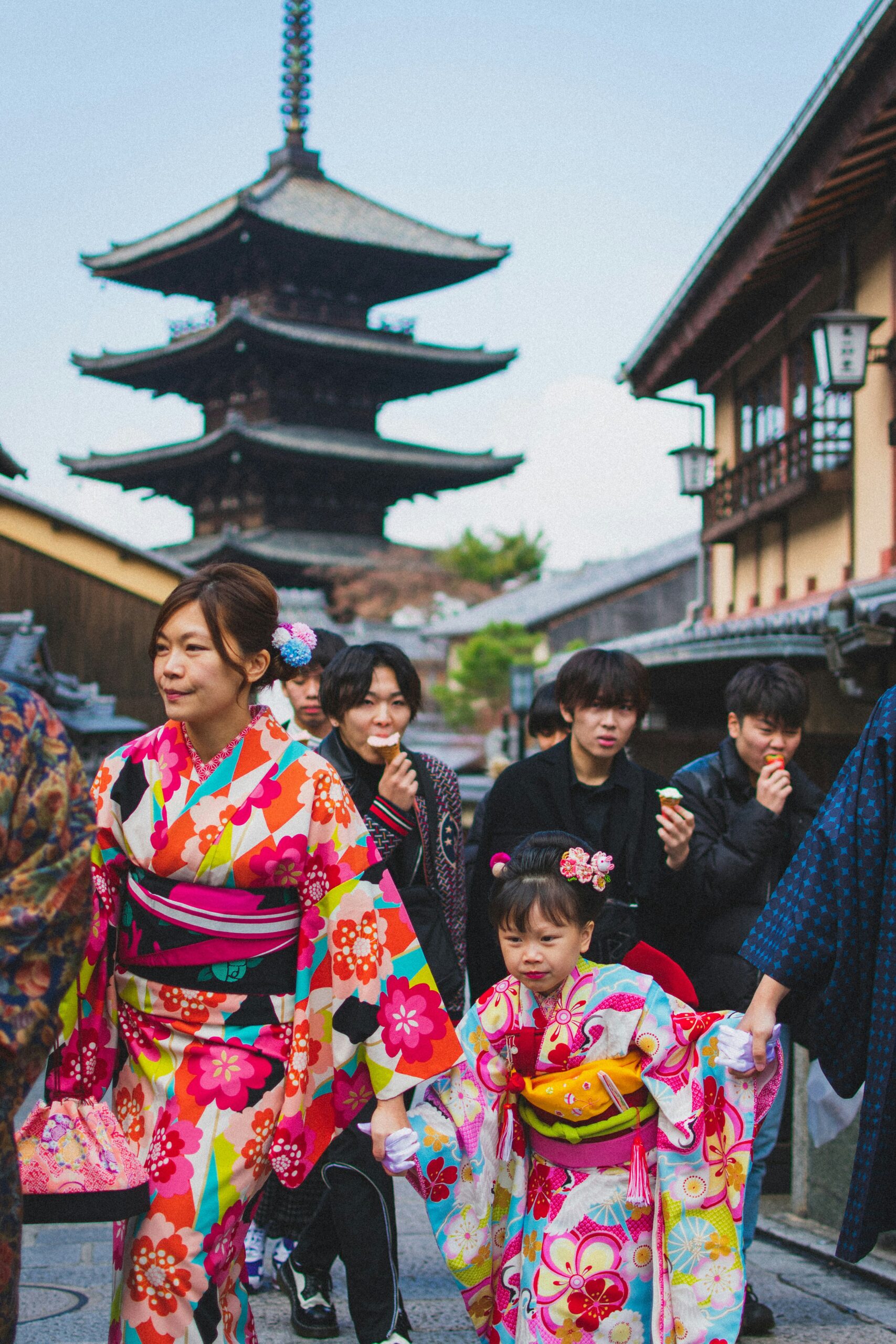
Inside a traditional kimono rental shop with an extensive selection of colorful designs
Kyoto has hundreds of kimono rental shops, but not all are equal. Look for these features:
- Variety of Styles: From casual komon to elegant furisode.
- Professional Dressing Help: Kimono can be tricky to wear properly. Staff should assist you.
- Hair Styling: Many packages include traditional hairstyles.
- Accessories: Obi belts, handbags, tabi socks, and zori sandals.
- Photography Options: Some shops include or partner with photographers.
👉 If you want a seamless kimono rental + photography experience, check out AllPhotos Kyoto.
Best Seasons to Visit in a Kimono
Each season transforms Kiyomizudera into a different world:
🌸 Spring (March–April)
Cherry blossoms frame the temple in pink.
☀️ Summer (June–August)
Lush greenery, though temperatures can be hot—light cotton yukata are recommended.
🍁 Autumn (October–November)
The temple is surrounded by fiery red and orange maples.
❄️ Winter (December–February)
Snow adds a mystical layer of beauty, but dress warmly.
Practical Tips for Climbing Kiyomizudera in a Kimono
- Choose Comfortable Footwear: Zori sandals may not be ideal for steep slopes. Ask for padding.
- Bring a Small Bag: Kimono sleeves make carrying large items difficult.
- Take Breaks: Walking uphill in layered clothing can be tiring.
- Stay Hydrated: Especially important in summer.
- Check Weather: Avoid rainy days, as silk kimono can be damaged.
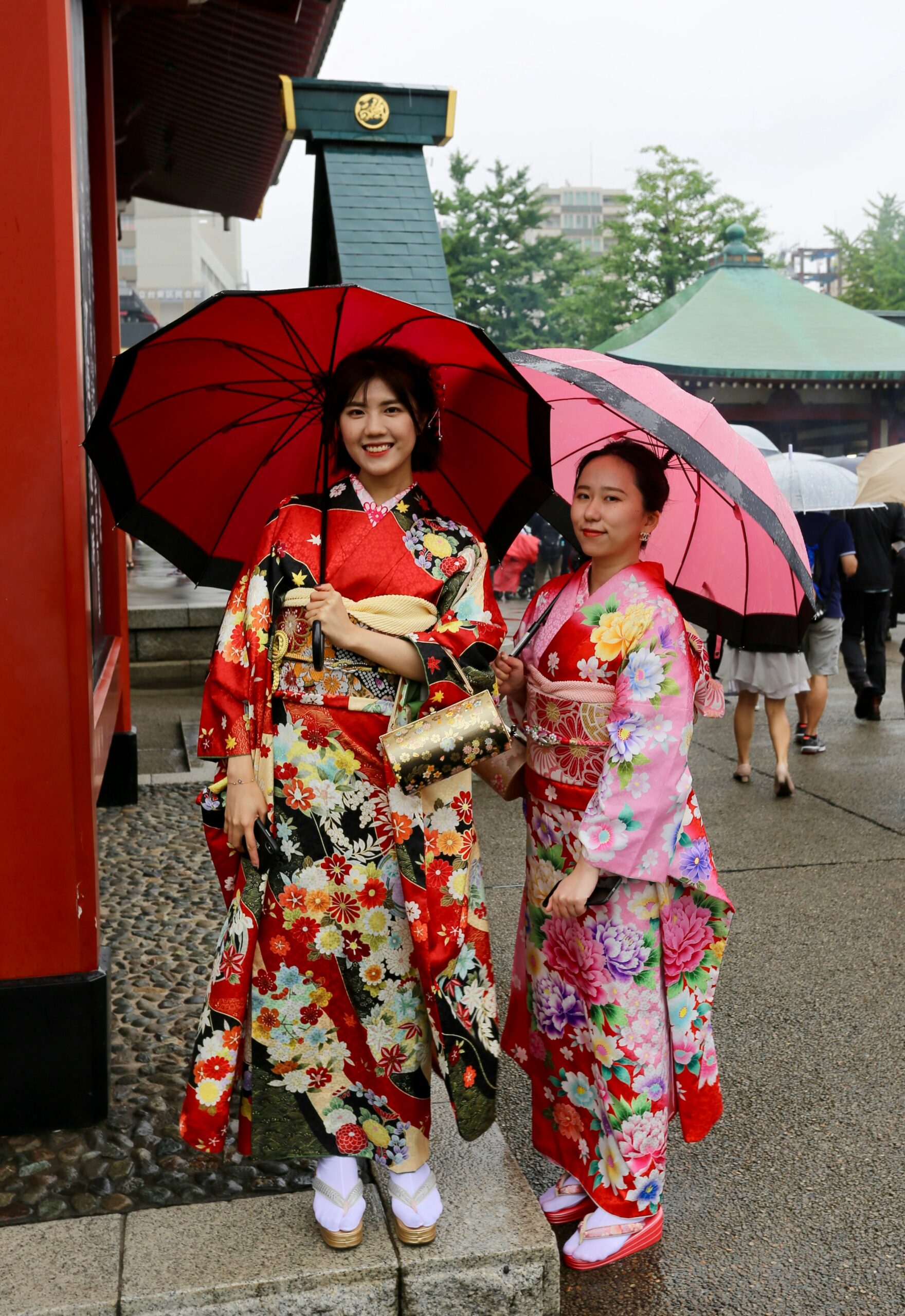
A couple in traditional dress exploring Kiyomizudera’s famous wooden stage
Cultural Etiquette to Remember
- Respect Sacred Spaces: Do not block pathways for photos.
- Bowing: A small bow at temple entrances shows respect.
- Quiet Reflection: Kiyomizudera is not just a tourist site but a place of worship.
Best Photo Spots at Kiyomizudera
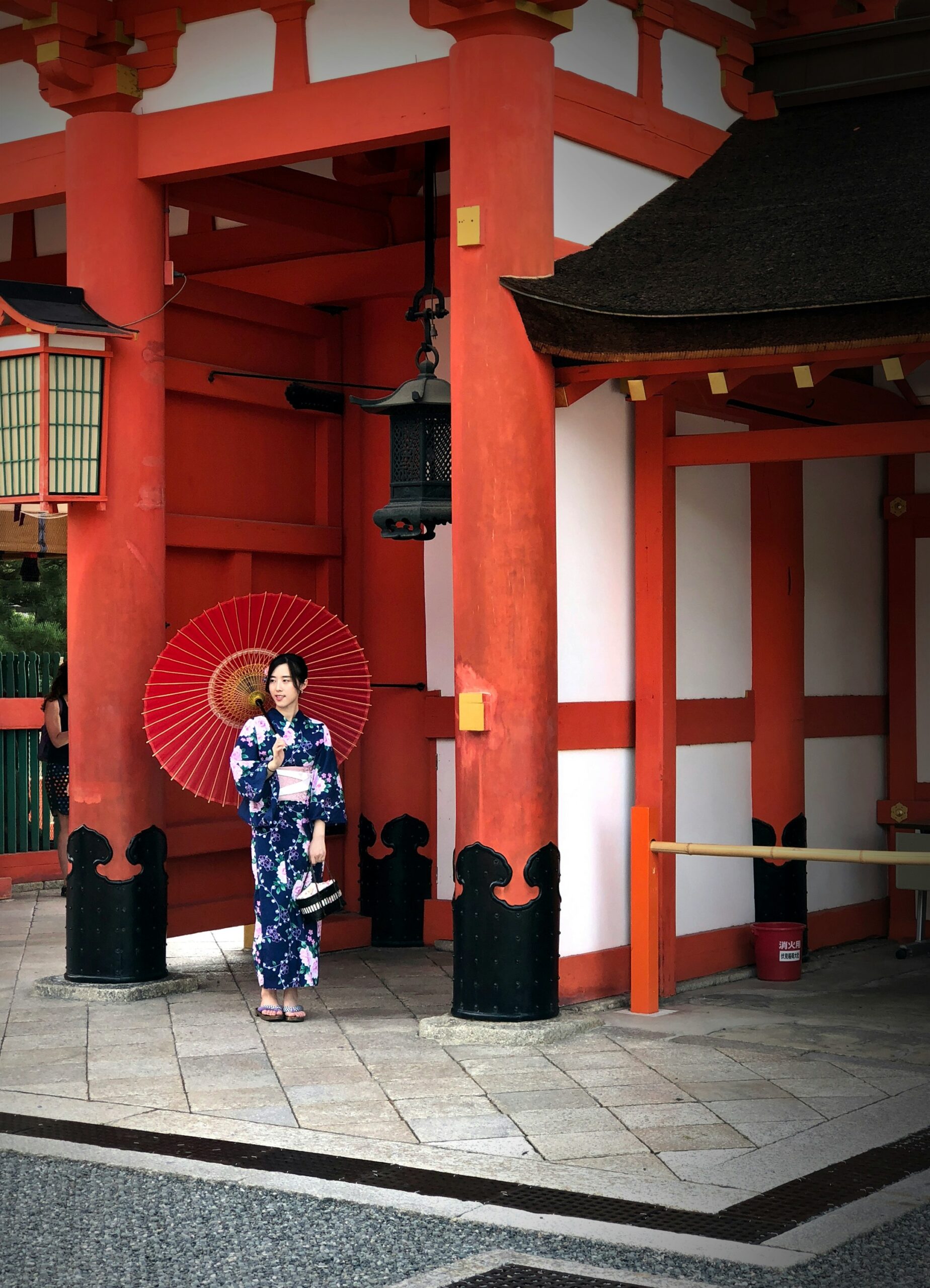
Friends in summer yukata exploring the charming Sannenzaka street
- The Wooden Stage: Overlooking the city and seasonal landscapes.
- Otowa Waterfall: Visitors drink from the three streams for health, success, and longevity.
- Niomon Gate: A dramatic entrance with guardian statues.
- Sannenzaka & Ninenzaka Streets: Picturesque lanes lined with shops, tea houses, and lanterns.
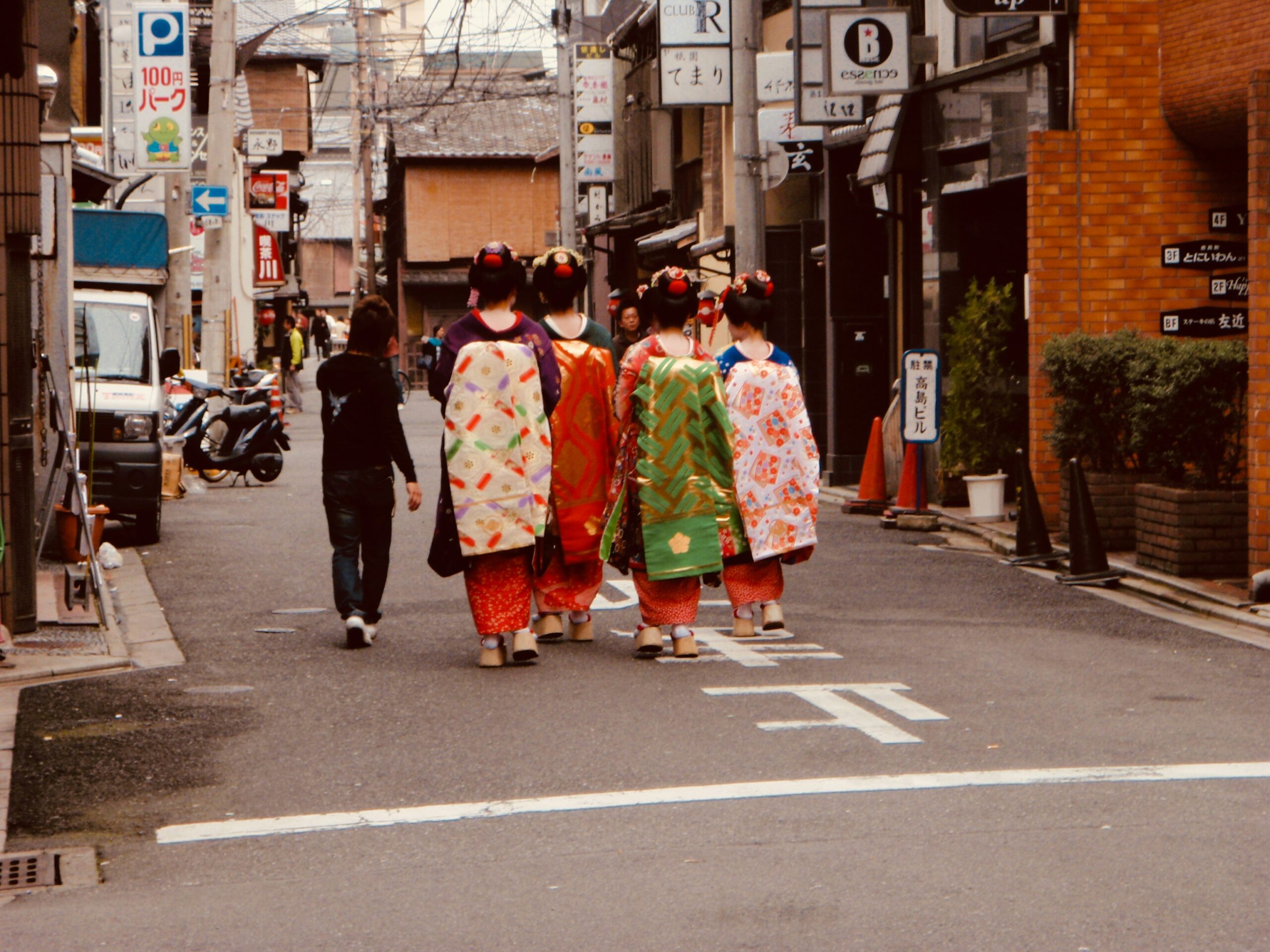
Participating in the sacred water ritual at Otowa Waterfall
💡 Pro tip: For professional, Instagram-worthy pictures, book a local photographer at AllPhotos Kyoto.
What Kind of Kimono Should You Wear?
Women:
- Furisode (long sleeves) for formal photos.
- Komon (casual, patterned) for comfort.
- Yukata (light cotton) in summer.
Men:
- Montsuki with hakama for a formal samurai-like style.
- Simple striped kimono for casual elegance.
Children:
Bright and playful designs—perfect for family shoots.
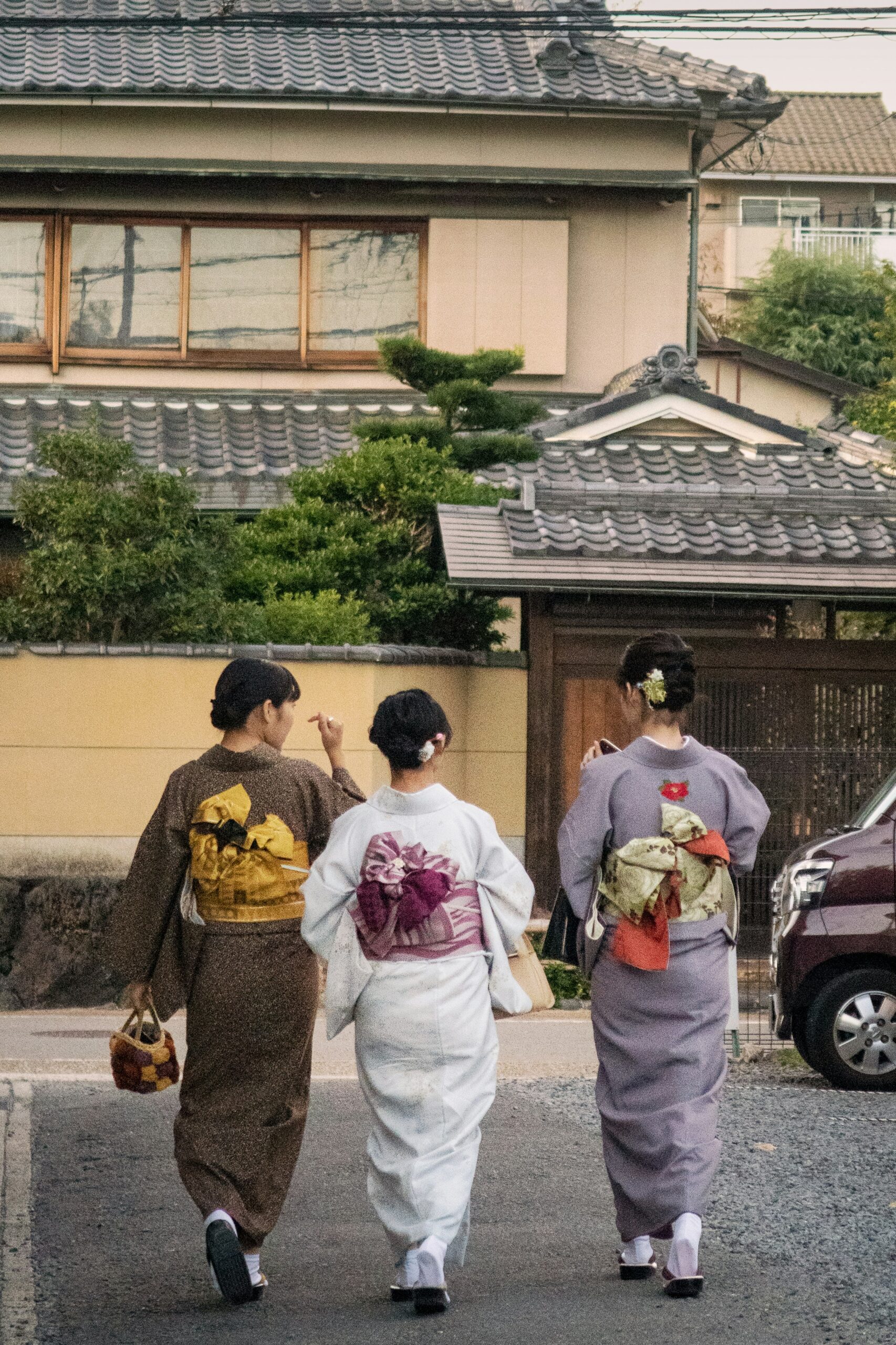
A family in coordinated kimono with the iconic Yasaka Pagoda backdrop
Suggested Itinerary: A Day in Kimono at Kiyomizudera
Morning
Rent kimono, get dressed, and style hair.
Midday
Walk Sannenzaka and Ninenzaka streets.
Afternoon
Explore Kiyomizudera and take photos at main viewpoints.
Evening
Enjoy Kyoto sweets like yatsuhashi while returning your kimono.
Beyond Kiyomizudera: Other Kimono-Friendly Spots Nearby
- Yasaka Pagoda: A five-story pagoda with stunning backdrops.
- Gion District: Famous for geisha and traditional tea houses.
- Maruyama Park: Best known for cherry blossoms at night.
Conclusion
Climbing Kiyomizudera Temple in a kimono is more than sightseeing—it’s living history. It combines Kyoto’s cultural depth, natural beauty, and timeless traditions in one unforgettable experience. Whether you’re traveling solo, as a couple, or with family, the kimono transforms your visit into a memory you’ll treasure forever.
👉 Ready to capture your kimono moment? Book your experience at AllPhotos Kyoto
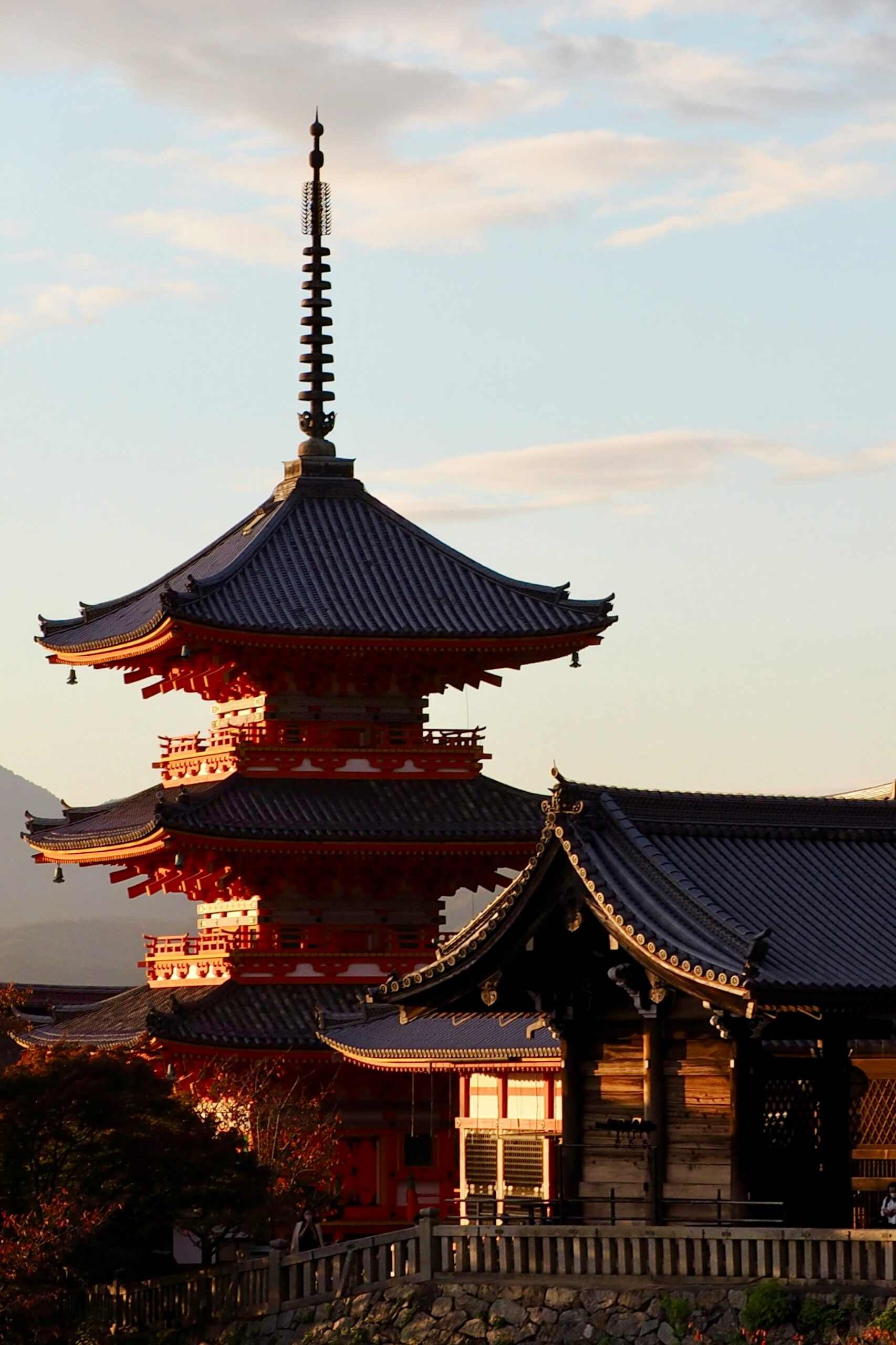


コメント